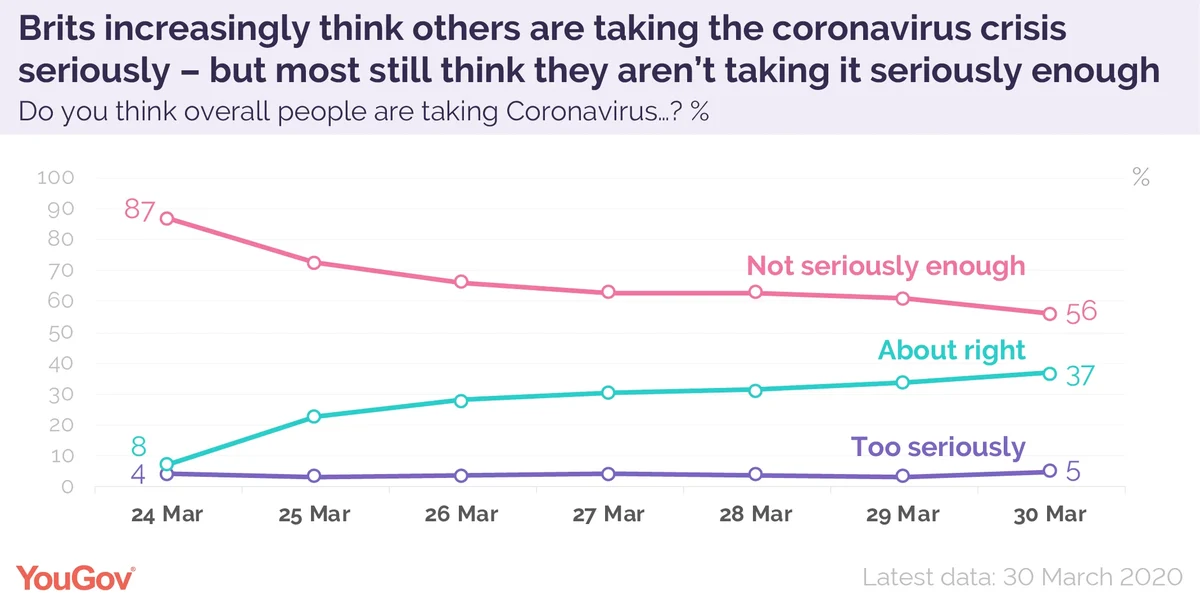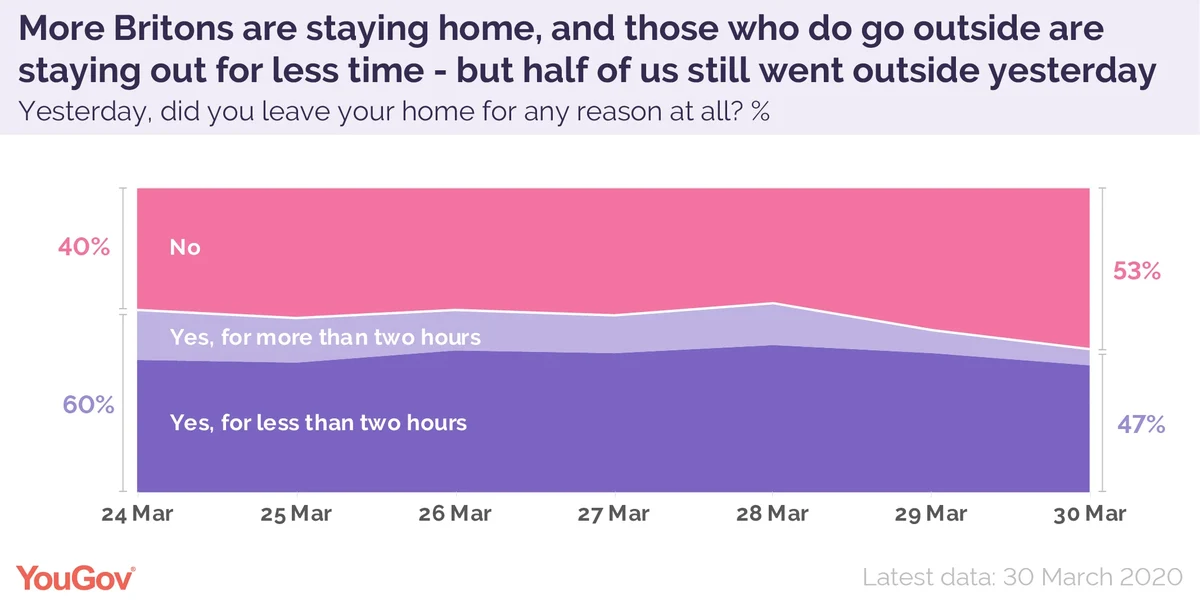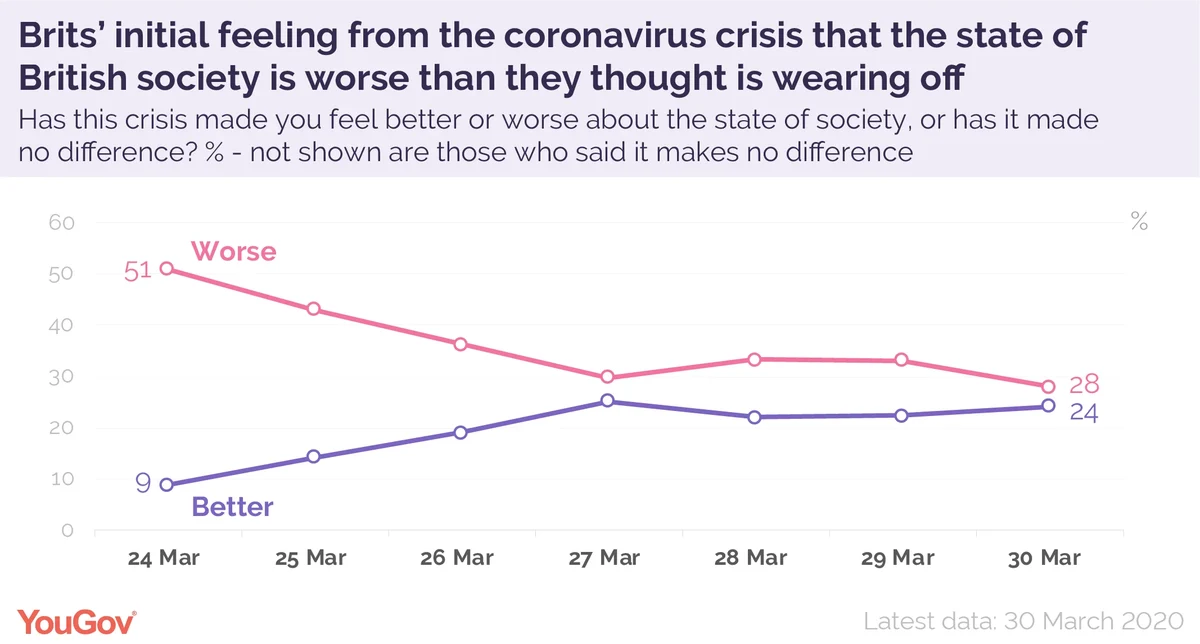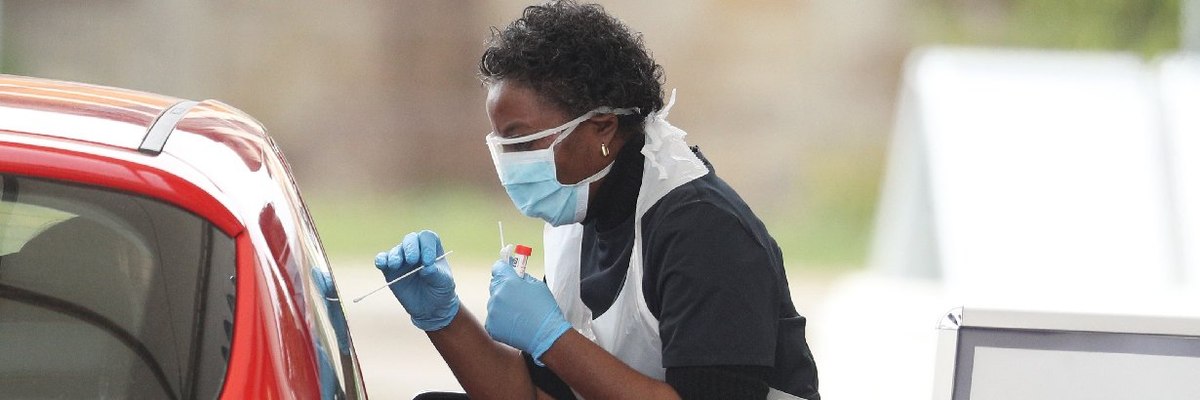Our daily tracker shows people’s opinion of their fellow Britons is improving
Last week YouGov launched a new daily tracker looking at how Britons are reacting to the coronavirus outbreak. One week on, we highlight the three changes in attitudes and behaviour that have really stood out.
1. Britons increasingly think their fellow countrymen are taking the crisis seriously – but most still think they aren’t taking it seriously enough
Last week a mere 8% of Britons thought that the public was taking coronavirus seriously enough. Since then that figure has risen dramatically, by almost 30 percentage points to 37%. Nevertheless, the majority of Britons (56%) still think their peers aren’t taking the outbreak seriously enough.

2. People are more likely to be staying in
A week ago 60% of Britons told us that they had left their home the day before. Since then that figure has fallen to 47%. The reduction in figures has largely come from people being less likely to stay outside for long periods of time – the proportion of people saying they left their home for more than two hours has fallen from 16% to 5%, while the proportion saying they have gone out for less than two hours has remained largely consistent.

Despite the number of people leaving their homes falling, the number of people who say they plan to leave their home the next day has remained consistent. In the first survey 53% reported plans to leave their home the next day, while 55% said the same in our most recent wave.
People are more optimistic about society
In the first survey fully half the country (51%) said that the crisis had made them feel worse about the state of British society, with just 9% saying it has made them feel better. A week later, and with hundreds of thousands of people having volunteered to join the NHS, those figures have changed significantly.
The proportion of Brits feeling worse about society has progressively fallen to 28%, while the number who feel better has now risen to 24%.

Photo: Getty











